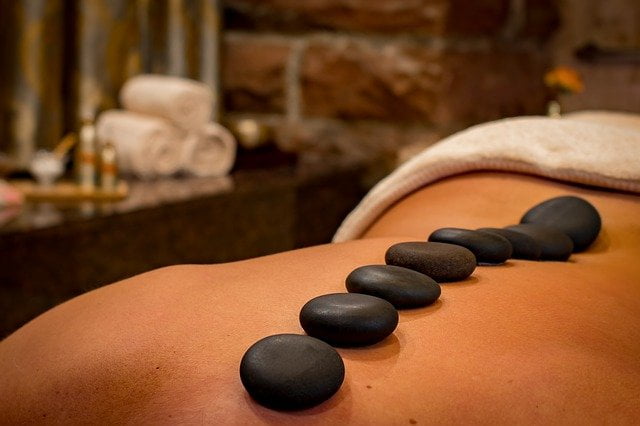Drug and Alcohol Rehab in Woking
Addiction is an issue you can’t fight on your own. So many people think they can, yet so many have failed. Why? The main reason is that there are stems to mental illness and disabilities linked to addiction.
So, even the strongest person, with a great deal of willpower, is going to have a hard time trying to quit, and to stay clean, if they are trying to do it on their own.
A recent government report on substance abuse in the UK showed that there were 275,896 adults in contact with addiction services.
Just over half of those had issues with opiates, while 28% had problems with alcohol.
The office for national statistics also published its latest report on drug poisoning in England and Wales on the 3rd of August 2020. 4,561 deaths related to drug poisoning were recorded in both countries.
And these statics don’t even consider the likely huge numbers of people suffering in silence, scared to reach out or even admit that they have a problem.
It’s never too late to reach out for help. All you need to do is get in touch with an organisation like Rehab Recovery, which has full teams ready with evidence-based treatment.
Begin your journey towards recovery at a drug and alcohol rehab in Woking by giving our expert team a call on 0800 088 66 86
The disease model of addiction

One very important thing to establish right from the start is that addiction absolutely isn’t a moral failing.
In fact, the way it affects your brain means it’s regarded as a disease. More specifically, a November 2016 report by former U.S Surgeon General Viveck Murthy M.D officially confirmed its status as such.
There’s also a strong connection between addiction and mental health. It’s nearly always a sign of underlying mental health issues, such as anxiety, depression, bipolar disorder and schizophrenia.
Addiction is not considered a ‘choice’ or ‘moral failing’ on behalf of the addiction sufferer – so the focus of rehab is always on returning agency to the patient.
This link between addiction and mental health also makes dual diagnosis incredibly important.
If you’re open about any and all mental health issues you have, then rehabs will be able to plan out evidence-based treatments specifically designed to suit your needs.
As addiction is often so individualised based on a variety of factors, this individualisation is also key.
You can read more about the disease of addiction here.
Discover how a drug and alcohol rehabilitation centre in Woking can help you to overcome the disease of addiction by caling us today on 0800 088 66 86
The importance of abstinence during drug and alcohol rehab in Woking

Rather than using harm reduction or moderation management, drug and alcohol rehabs in Woking focus on abstinence.
Permanently staying away from drugs and/or alcohol after your treatment is nearly always the best solution.
If you get in contact with substances or with alcohol again, you constantly run the risk of going out of control and relapsing.
If they’ve already damaged your health, then you could also face further greater health risks than a non-addicted person if you take them.
Finally, continuing to take drugs and/or alcohol could keep you in the social situations that triggered your addiction in the first place, if that was a major cause.
Most experts have agreed that abstinence is far more effective than harm reduction or moderation management.
Achieve abstinence with the help of one of the many drug and alcohol rehab centres in Woking by calling us today on 0800 088 66 86
The benefits of residential drug and alcohol rehab in Woking

Although there are of course other treatment options out there, residential drug and alcohol rehab in Woking is the best choice for more severe cases.
First of all, if you’re currently in a toxic environment that’s triggering your addiction, getting away from it could be vital to your recovery.
For anyone with a more severe addiction case, taking a chance to “reset” could also be mentally beneficial.
Residential drug and alcohol rehab in Woking will also give you access to 24/7 care and support.
You’ll have a full team ready to help you at all times, no matter what your specific addiction issue is.
It will also allow you to live amongst and meet people in similar circumstances and form permanent relationships, to a greater extent than visits to a centre would.
This might sound like a minor point, but being able to talk to people who know exactly what you’re going through can be a huge help for a lot of people.
Gain all the benefits of a residential alcohol and drug rehab in Woking by calling us today on 0800 088 66 86
Private vs. NHS Addiction Treatment Services in Woking

The NHS can fund places at drug and alcohol rehabs. However, to be granted this funding, you have to meet strict criteria, and the waiting lists can be long.
On one hand, private rehab is often easier to access, as you won’t have to deal with long waiting lists. You could also get the benefit of a more intensive residential programme if that’s something you need.
It’s also likely to be more personalised and specialised, which can be especially important in more severe cases.
But council rehab is also accessible to all and has the benefit of being based in your local area.
For many people, this is both more convenient and more comfortable overall.
At the end of the day, private and council-funded rehab treatment both have pros and cons – it’s simply a case of researching and figuring out what works best for you.
For help choosing between private and public rehab in Woking, talk to our expert team today on 0800 088 66 86
Why residential rehab in Woking isn’t for everyone

Professionally supported drug and alcohol rehab is one of the best ways to recover from addiction, but it isn’t for everyone.
You’ll only be recommended it if:
- You’re drinking 30+ units a day with co-occurring mental health issues.
- You’re having suicidal thoughts.
- You’ve failed to remain sober after multiple attempts.
- You have significant mental problems and would struggle to do a home detox.
- If your drug/alcohol use would make this medical condition worse.
- If you’ve committed acts of violence against loved ones while intoxicated.
- If you experience delirium tremens or alcoholic seizures.
- If you suffer from Wernicke’s encephalopathy.
Generally, these criteria cover nearly all “high risk” clients.
Speaking of criteria, the DSM-IV-TR also has criteria for substance dependence. These points are the major factors that define the severity of any addiction.
Points 1 to 7 are:
- Hazardous use
- Social or interpersonal problems relating to the use
- Neglected major roles to use
- Withdrawal
- Tolerance
- Used larger amounts for longer
- Repeated attempts to control the use or quit
To discover whether or not a residential rehab centre in Woking is right for you, give our team a call today on 0800 088 66 86
The alternatives to going to rehab in Woking

If residential rehab isn’t for you, there are of course many alternatives.
These include:
- Alcoholics Anonymous, Narcotics Anonymous and Cocaine Anonymous – These anonymous meetings will allow you to get your feelings out in a safe, confidential space. You’ll also be able to hear the stories of others, possibly bonding over your shared experiences.
- SMART Recovery – Here, the focus on self-sufficiency, as you learn to manage your own urges, motivate yourself and ultimately live a more balanced life. In accordance with this, SMART stands for Self Management And Recovery Training.
- Home detox – Detoxes are often a vital first step in any recovery. In any alcohol or drug detox, your intake of drugs and/or alcohol will slowly be reduced There are a variety of types: as its name would suggest an at-home detox is completed at home, with the support of an outside team. We should also note that this is different to an unsupported detox, where you try to go cold turkey at home on your own. That will likely be ineffective at best and dangerous at worst, primarily due to the withdrawal symptoms that occur once dependency has developed.
- Al-Anon Family Group meetings – These meetings have a similar function and structure to alcoholics anonymous – but they’re designed for the families of those suffering from drug or alcohol addiction.
- Outpatient treatment via a local Drug & Alcohol team in Woking – Residential rehab isn’t the only way you can access an entire team’s worth of support! Generally designed for those with less severe cases, outpatient treatment will allow you to recover while also staying in an environment you’re comfortable with.
Whatever help you need to beat addiction – whether from a conventional rehab in Woking, or one of these excellent alternative services – allow our expert team to help you by calling us today on 0800 088 66 86
The admissions process for drug and alcohol rehab in Woking

While admitting and assessing you for drug and alcohol rehab in Woking, we’ll use several criteria to assess your case.
This level of personalisation is extremely important, as treatment can change based on a variety of factors.
This includes how severe your addiction is, your current living circumstances, what you’re addicted to in the first place, your history with alcohol or drug addiction treatment and your overall personality.
The DSM-5 (the Diagnostic and Statistical Manual of Mental Disorders, 5th edition) uses 3 levels of severity for addiction – these are 0.5 (at-risk), 1 (mild), 2 (moderate) and 3 (severe).
The American Society of Addiction Medicine (or ASAM), also has a patient placement criterion, which uses six dimensions:
- Acute intoxication and/or withdrawal potential – How likely are you to experience withdrawal symptoms?
- Biomedical conditions and complications – Do you have any underlying physical conditions that need to be taken into account?
- Emotional, Behavioural or Cognitive conditions or complications – Do you have any non-physical conditions that need to be taken into account?
- Readiness to change – How willing are you to change your lifestyle or your current behaviour? Recovery from addiction often requires major life changes, so that’s something you’ll need to be prepared for
- Relapse, continued use or continued problem potential – How likely are you to relapse once your initial treatment is over?
- Recovery environment – Are you currently in an environment that will support your recovery?
Finally, the Alcohol Use Disorders Identification Test (or AUDITs) is also commonly used.
It consists of 10 questions, specifically on alcohol use and its consequences. You get a certain number of points depending on your answer and a score of more than 13 points indicates dependency – a score above 8 is also a cause for concern.
Questions 1 to 3 look into your intake, asking:
- How often do you have a drink containing alcohol?
- How many units of alcohol do you drink on a typical day when you’re drinking?
- How often have you had 6 or more units if female, 8 or more if male, on a single occasion in the last year?
- Questions 4 to 6 then move on to dependency, asking:
- How often during the last year have you found that you were not able to stop drinking once you had started?
- How often during the last year have you failed to do what was normally expected of you because of your drinking?
- How often during the last year have you needed an alcoholic drink in the morning to get yourself going after a heavy drinking session?
- As alcohol addiction can have such devastating consequences, questions 7 to 9 cover that, asking:
- How often during the last year have you had a feeling of guilt or remorse after drinking?
- How often during the last year have you been unable to remember what happened the night before because you had been drinking?
- Have you or somebody else been injured as a result of your drinking?
Begin the admissions process at a rehab in Woking by calling our expert team today on 0800 088 66 86
Holding an intervention in Woking

Getting help for addiction on your own can be a huge struggle. Some people simply can’t manage it on their own – that’s where interventions come in.
Interventions happen at a stage where the person suffering from the addiction clearly can’t get help on their own. At a point where they’re still in denial and need an outside perspective.
At a base level, interventions can be defined as action taken by people who care about you, to help combat your addiction.
This can, however, take many forms, all of them led by professional interventionalists.
In a traditional intervention, anyone who has concerns will gather to talk directly to you about your problems.
They’ll take turns to read out a letter, highlighting what they think needs to change, what help they think you should get and how your addiction has affected them.
There’s also the CRAFT approach. CRAFT stands for Community Reinforcement And Family Training.
The focus here is on families learning to communicate effectively and positively re-enforce the person suffering from addiction, while also discouraging negative behaviours.
To learn more about holding an intervention in Woking, give our team a call today on 0800 088 66 86
How much does drug and alcohol rehab in Woking cost?

The cost of drug and alcohol rehab in Woking also varies from case to case and from organisation to organisation.
But typically a 10-day detox with a single occupancy room would come from £3,000 to £6,000. Multiple occupancies then go down to £2,000 to £4,000.
You might, of course, go for an at-home detox, which is usually about £1,500.
Going back to residential treatment, many people might need to stay for longer than 10 days. A 28-day stay goes up in price to £8,000 to £12,000 for single occupancy and £6,000 for multiple occupancies.
Before engaging with any treatment, it’s important to check that it’s affordable to you. Research and then compare and contrast before you make any final decisions.
To learn precisely how much your stay at an alcohol and drug rehab in Woking is likely to cost, give our team a call today on 0800 088 66 86
Tips for choosing the right drug and alcohol rehab in Woking

Before you embark on any treatment, it’s very important to research all of your options. Look at everything available and start to think about what could work best for you, even if it’s on a small scale.
Then, if and when you get in touch with an organisation like Rehab Recovery, you’ll be able to go in with some knowledge of your potential paths.
Write down all of your choices and then produce a pros and cons list, so you can see the good and bad of each choice in equal measure. Looking at this and knowing what you need, you should start to get some idea of what’s right for you.
You should also look at factors like affordability, history, track record/success rate, the kinds of treatment on offer and location.4
To make sure that you end up at the right rehab in Woking for your unique needs, call us today on 0800 088 66 86
What is a detox, and do I need one?

Many physical addictions, such as opiates and alcohol, can create dangerous withdrawal symptoms if you suddenly attempt to stop.
This happens at a point where dependency has developed – essentially, where your body has become reliant on drugs or alcohol, due to excessive use over a long period of time.
Increased tolerance can be an early sign of dependency, as it means that your system is adapting in accordance with your intake.
These vary from drug to drug, with alcohol being its own category. But overall, withdrawal symptoms can include nausea, vomiting, diarrhoea, shaking, sweating and a disrupted sleep pattern.
In the most severe cases, it can even lead to seizures and delirium tremens.
During an alcohol or drug detox, your intake is slowly reduced in a safe and supported manner, over a set period of time. You’ll also be prescribed specific prescription drugs to help curb the worst potential withdrawal symptoms.
For alcohol specifically, we’d recommend a Librium-based alcohol detox over a 10-day period. This prescription drug will help to reduce the risk of alcohol withdrawal symptoms.
After your detox is over, we’d also recommend at least a further 3 weeks in rehab to tackle the emotional causes of your addiction, following on from its physical side being dealt with.
This will be tackled with therapies such as cognitive behavioural therapy, dialectal behavioural therapy, holistic therapies and group therapy.
The third and final stage of any treatment plan is aftercare and a big part of that is relapse prevention planning.
We’ll work to identify any triggers you have, so you can avoid them once you’re back in the wider world.
Make sure that your detox is handled safely and effectively by calling our team today on 0800 088 66 86
How long does drug and alcohol rehab in Woking last?

The answer to this question, first of all, depends on whether you have a physical or psychological dependence.
If it’s the former, a physical detox will be included in any treatment plan designed for you. With alcohol specifically, we’d recommend an absolute minimum of 7 days for a detox.
Some drugs affect only your mind, meaning you won’t experience physical withdrawal symptoms if your intake suddenly drops.
But some drugs, along with alcohol, can produce powerful withdrawal symptoms such as nausea, diarrhoea, vomiting, shaking, sweating, seizures, hallucinations and/or delirium tremens, depending on how severe your alcohol or drug addiction is.
28 days is usually required to fully focus on both the physical and mental side of addiction and to make the most out of all available therapies.
To learn precisely how long your stay at a drug and alcohol rehab clinic in Woking is likely to last, call our team today on 0800 088 66 86
Cocaine rehab in Woking

Cocaine and crack cocaine is only psychologically addictive, so it doesn’t require a cocaine detox.
But that doesn’t mean that it’s not dangerous: in 2020 alone it caused 777 deaths in the UK.
Cocaine is particularly known for causing an intense high, followed by a crash. This also makes it highly addictive, as this encourages repeat uses.
This then means that users build up a tolerance quickly, taking more and more each time.
In fact, it’s so addictive that one use can lead to addiction.
On a chemical level, cocaine increases the dopamine levels in your brain, resulting in depression and other psychological withdrawal symptoms when it’s suddenly taken away.
The main focus of cocaine rehab in Woking is psychological. Various therapies and addiction counselling techniques may be used here, including cognitive behavioural therapy, motivational interviewing and group therapy.
Overcome your cocaine addiction with the help of rehab in Woking by calling us on 0800 088 66 86
Heroin rehab in Woking

Heroin is known for producing severe physical withdrawal symptoms, including abdominal pain, agitation, sweating, cravings, nausea, vomiting agitation and depression.
This means that, if you’re being treated for heroin addiction, you’ll need to start off with a heroin detox.
Withdrawal symptoms typically emerge 6 to 12 hours after your last dose, peaking at 1 to 3 days and then subsiding after about a week.
But please be aware that this isn’t true for every case.
Your treatment having a physical side also doesn’t mean the psychological side will be ignored.
Therapy and addiction counselling will get to the root emotional causes of your addiction and are vital in any treatment.
Overcome your heroin addiction with the help of rehab in Woking by calling us on 0800 088 66 86
Cannabis rehab in Woking

Although many people see cannabis as a relatively harmless drug (and it doesn’t produce any physical withdrawal symptoms, meaning a physical cannabis detox at the start of treatment won’t be required), it can still have hugely damaging effects.
Its effect on the central nervous system can result in anxiety, depression or even hallucinations and memory loss in the most severe cases.
As is the case with many other drugs, a tolerance can quickly build up after repeated uses.
Tolerance can then lead to dependence, creating a psychological cycle that is difficult to escape from without help.
Once again, due to its far-reaching psychological impacts, the focus during cannabis recovery will mainly be on your mental, rather than physical health.
Overcome your cannabis addiction with the help of rehab in Woking by calling us on 0800 088 66 86
Therapies offered at drug and alcohol rehab Woking

Now let’s discuss the kinds of therapies on offer through drug and alcohol rehab in Woking.
All of these are designed to target the underlying mental causes of addiction, through various methods.
If you’re facing multiple mental health issues, you may end up with a different combination of these treatments.
You may also experience different mental health treatments based on your specific addiction – but all of them are proven to be highly effective.
Some of the most common are:
- Cognitive behavioural therapy – CBT specifically targets the toxic thinking and behaviour patterns here called ‘cognitive distortions. These can often cause people to spiral, so it’s important to work through them.
- Dialectical behavioural therapy – DBT puts the focus on managing emotions, using the same model as CBT.
- Brief interventions – Brief interventions are essentially check-ins, where you’ll talk with a professional about your progress.
- Motivational interviewing – In motivational interviewing, you’ll be asked a series of questions that will encourage you to re-examine past behaviour. The intention of this isn’t for you to feel guilty – it’s for you to re-examine the past so you can move forward into a better future.
- Holistic therapies – Holistic therapies such as art therapy, music therapy, mindfulness, meditation, yoga and nutritional therapy, all focus on healing the whole self, usually by engaging you in various activities.
- Group therapy – Forming connections with and meeting people in the same situation as you might also make you feel a lot less alone. Plus, having someone to talk to about your situation who truly understands and healing alongside that person can be very freeing.
- Individual therapy – At the same time, addiction treatment is often highly individualised, as addiction itself often has so many unique factors at play. As a result, individual, personalised therapy can also be a really important part of the overall process.
- Family therapy – If you feel that your family needs to work through issues caused by your addiction, family therapy could be a good choice alongside other treatments.
- Co-dependency treatment – As the ‘dependency’ part of its name would indicate, co-dependency is an unhealthy relationship structure where one person’s needs are put over another. As this can often arise from addiction, co-dependency treatment is often part of rehab.
To experience any and all of these excellent treatments at a rehab in Woking, call us today on 0800 088 66 86
Relapse prevention planning at drug and alcohol rehab in Woking

Relapse prevention planning is a vital part of the aftercare stage.
At this point, we’ll work to identify all of your triggers and teach you to work through them.
We’ll also look over any lifestyle changes you might need to make, on a personal and professional level.
Beyond this, we also use specific strategies, such as HALT and mind-body meditation.
HALT stands for Hungry, Angry, Lonely, Tired. All four of these are feelings that could lead to relapse if they’re left unchecked.
The HALT strategy teaches you how to identify these feelings before they take over and process them in a healthy manner.
Like holistic therapies, mind-body meditation focuses on the whole self. The intention is to help you feel calm and relaxed, taking away the stress that could eventually result in a relapse.
Give yourself the best chance of staying sober for good with the help of an alcohol and drug rehab in Woking – call us today on 0800 088 66 86
Getting clean is hard

If it was easy, so many more people would do it. And, if it were not an issue, you would be the only person who has an issue with addiction.
Neither of these is true – in fact, millions of people around the world are struggling with addiction as we speak.
This is why drug and alcohol rehab in Woking is a great option for those who are trying to quit.
It is not easy to quit, you are going to go through roadblocks and struggles along the way.
There are going to be points where you fail and there are going to be questions you need to answer along the way.
No matter what it is that you are going through, a drug and alcohol rehab in Woking has seen it in the past; therefore, they are going to know how to help you fight through it.
Beat your addiction at one of the many rehab clinics in Woking by calling us on 0800 088 66 86
Rehab can answer any questions you have

A drug and alcohol rehab in Woking is going to provide you with insight into questions you are dealing with.
- Why do I struggle with addiction?
- What led me down this road?
- Why can’t I quit even though I want to?
Working with a drug and alcohol rehab in Woking, you are going to work with top therapists, and people who can analyse the psychiatry behind your addiction.
This is going to get to a deeper level and is going to help you figure out the underlying reasons why you are using and abusing.
In turn, it is going to make it much easier for you to find ways which will help you quit, and it is going to make it easier for you on the road to recovery, or at the time you are thinking of relapse, if you are at the later stages of your road to recovery in rehab.
If it were easy to quit, there would be no such thing as drug and alcohol rehab in Woking; this, however, is not the case.
There are millions of people who need help, so you do not have to feel as if you are alone, and as if you are the only person who is struggling with this issue.
We can help you find the right rehab to help along your journey to get clean. Fill out the short form below and we can pair you with the top drug and alcohol rehab in Woking when you’re ready to start the recovery process.
Start your recovery journey at a rehab clinic in Woking today by calling our expert team on 0800 088 66 86
Rehabilitation Alternatives in Woking

These statutory-funded services and charities can offer you addiction treatment at no cost to yourself:
1. Women’s Wellness Zone
Address: 71 – 73 The Broadway, Southall, UB1 1LA
Telephone: 0208 571 4954
Website: https://www.changegrowlive.org/womens-wellness-zone-ealing
2. Northcote Avenue
Address: 36A Northcote Avenue, Southall, UB1 2AY
Telephone: 020 8843 5900
Website: https://www.changegrowlive.org/rise-ealing
3. Uxbridge Road
Address: 99-103 The Broadway, West Ealing, Uxbridge Road, W13 9BP
Telephone: 0208 567 4772
Website: https://www.changegrowlive.org/rise-ealing
Papyrus, Rethink Mental Illness, Young Minds Samaritans, or Mind can offer free wellbeing services, to keep your mental health in shape while you recover from addiction.
Support Through Rehab Recovery

We can help you start a new life in recovery, by offering free advice as well as referrals to private rehabs throughout the UK.
If you’d prefer to go to rehab outside of Woking, we can also offer referrals to clinics in Guildford, Shere, Dorking, Woking, Reigate, Godalming, Farnham, Epsom, Cranleigh, Chiddingfold, Ripley, Abinger, Haslemere, Camberley, Banstead, Redhill, Shamley Green, Englefield Green, Cobham, Addlestone, Walton-on-Thames, Hambledon, Windlesham, Lingfield, Weybridge, West Byfleet, Virginia Water, Bramley Leigh, Shepperton, Ewell, Bletchingley, Leatherhead, Brockham, Chertsey, Abinger Hammer, Chobham, Staines-upon-Thames, Esher, Godstone, Oxshott, Peaslake, Betchworth, Mickleham, Shackleford, Albury, Alfold, Oxted, and even more places in and around Surrey.
The Care Quality Commission (England and Wales) or the Care Inspectorate (Scotland) oversee all of the treatment facilities we recommend.
Many members of the team at Rehab Recovery have fought their own battle with addiction, and can offer referrals to some of the best private rehabs in the country, as well as free, unbiased advice.
To find a suitable rehab in Woking, contact Rehab Recovery on 0800 088 66 86.


